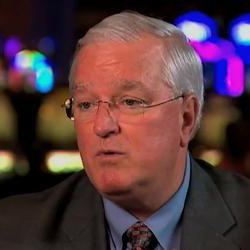
Ed Sutor Does Not See RAWA Passing, Because Congress Will Balk at the State’s Rights Issues It Raises
The News Journal, a leading Delaware newspaper, talked to several gaming officials in the state about Restore America’s Wire Act, the anti-gambling legislation currently being discussed in the U.S. Congress. At the top of that list was Vernon Kirk, the director for Delaware’s state lottery.
When asked about the Restore America’s Wire Act bill’s ability to end online lottery ticket sales, Mr. Kirk said, “There are a lot of nervous lottery people.”
States like Delaware and Georgia have been on the forefront of US states in online lottery ticket sales. People can go on the Internet to buy state lottery tickets and scratch-offs. It increases the scope of ticket sales, and many industry executives believe online lotto sales could become a key revenue generator for U.S. states facing budget concerns.
US States Considering Online Lotto Sales
Over a dozen U.S. states are considering launching their own Internet lottery vending portals, too. Their hesitation to do so at the moment is tied to concerns they would invest the money in a vending option that could be made illegal at any time. Those states which already have online lotto sales are nervous their expensive new technology might be rendered useless by an arbitrary act of Congress.
Ed Sutor Sees Little Chance of Passage
Ed Sutor, who serves as the The Dover Downs Hotel and Casino’s CEO, said he is keeping a watchful eye on the congressional deliberations. Mr. Sutor believes RAWA will not pass, though. He said, “I don’t think there is enough support down in Congress. That’s taking away state’s rights.”
Many onlookers are concerned about state’s rights, but few have hit upon a key reason why so many states are going to see RAWA affecting their interests directly. Some of the most anti-gambling states are against RAWA, just like some of the most conservative political activists on Capitol Hill: because RAWA affects lottery gaming.
Georgia Lottery Officials Lobby against RAWA
That is why Georgia, a state known for its hostility to poker and casino-style gambling, is against Restore America’s Wire Act. The Atlanta Journal-Constitution’s Greg Bluestein reported last summer that Georgia Governor Nathan Deal’s administration “has been engaged in a quiet lobbying campaign” against the RAWA legislation proposed by Jason Chaffetz and Lindsey Graham. The law would cost Georgia millions of dollars in invested resources, along with tens of millions of dollars of lotto ticket sales.
Conventional Logic on Anti-Gambling Laws
Conventional logic says that Congressmen from most U.S. states are likely to balk at the notion of a federal anti-online gambling bill. Most few the matter along the lines of Ed Sutor’s reasoning or have direct money concerns, due to the lotto issue.
Jason Chaffetz cites state’s rights to justify his support for a federal ban on online casinos and poker sites, but most people who comment on the debate in Congress see him as a pushing federal authority over decisions traditionally made by individual states.
UIGEA: A Warning from Recent History
Of course, conventional logic sometimes goes out the window when leaders of the legislature want a particular bill passed. In 2006, everyone agreed that UIGEA did not have the votes to pass in the Congress on its own merits. Instead, the bill was attached to the Safe Port Act, a popular bipartisan bill which few congressmen would have voted against at the time. When the bill was attached to the more popular piece of legislation, it was all-but-assured of being signed into law.
Most Beltway observers see little chance of that happening with RAWA, because the state’s rights issues seem to offend enough Republicans, who control both the House of Representatives and the Senate at present. But it is a warning that online gambling proponents have to be wary and must maintain high energy levels in their efforts to remind lawmakers they do not want a 50-state ban on online gambling.
